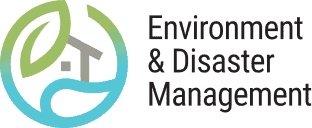Disasters can lead to sudden, large-scale increases in building material demand. Following the devastating earthquakes that struck Nepal on April 25 and May 12, 2015 for example, approximately half a million homes collapsed or were damaged beyond repair and over 250,000 were partly damaged, requiring a massive rebuilding effort.
Over or rapid and poorly managed extraction of natural resources for building materials can cause significant social and environmental impacts such as erosion, deforestation, landslide, mudslides and floods.
In response to the Nepal earthquake WWF developed a Nepal specific Building Material Selection and Use: An Environmental Guide (BMEG). WWF developed the guide to provide information on environmentally responsible selection and use of materials to reduce future risk and create a more resilient built environment. In the two years since the Nepal Earthquake an international version and a Sri Lankan version (forthcoming) of the BMEG have also been developed. A range of humanitarian actors from members of the UN Emergency Shelter Cluster to peacekeeping forces in Darfur have requested copies of the guide since its release.
The Northwestern University McCormick School of Engineering and Applied Science’s flagship Design Thinking and Communication (DTC) class, under the leadership of professor Dr. Stephen Carr (Materials Science and Engineering and Chemical and Biological Engineering) and with support from WWF’s Dr. Missaka Hettiarachchi, is updating the BMEG to expand upon the existing format and to include a wider range of building materials and alternatives. As a part of the WWF-NU collaboration, and our efforts to capture learning and emerging better practices, students will be conducting user surveys to assess how and where the tool is being used and how the guide can be updated to expand applicability and meet the growing needs of users. “It’s encouraging to see the depth to which undergraduates can take their investigation into Nepal’s unique needs for disaster recovery guidelines,” said Carr.
Surveys will take place over the month of May and we will post progress updates. If you are interested in participating in the survey or finding out more information about the project email [email protected]
Download the international version of the BMEG and participate in the survey.
